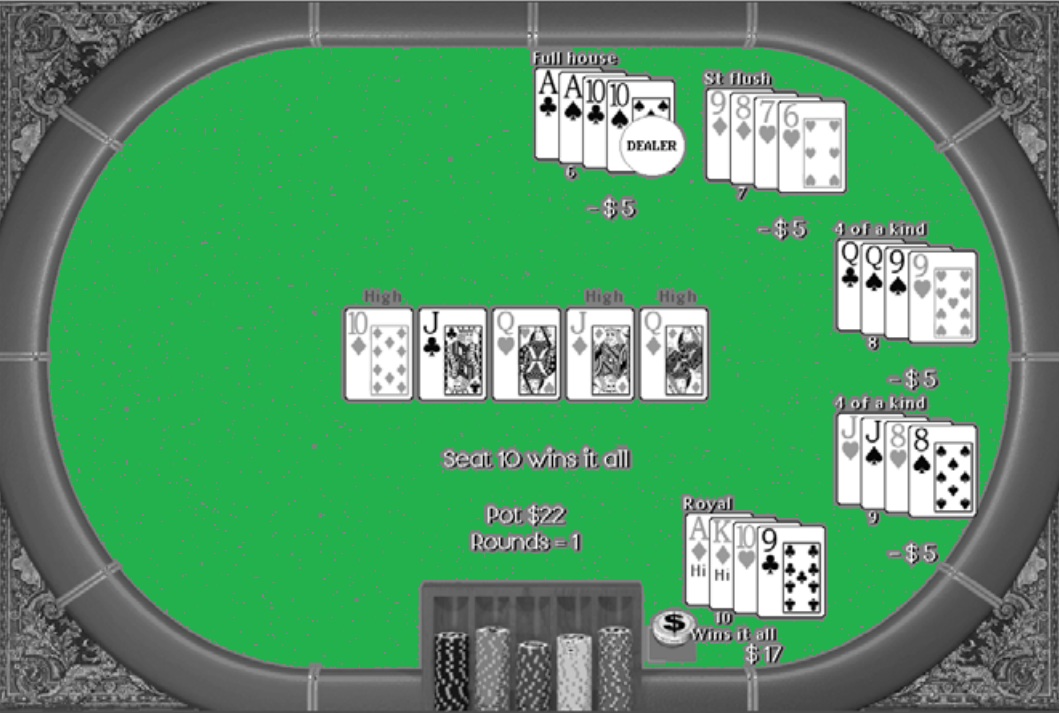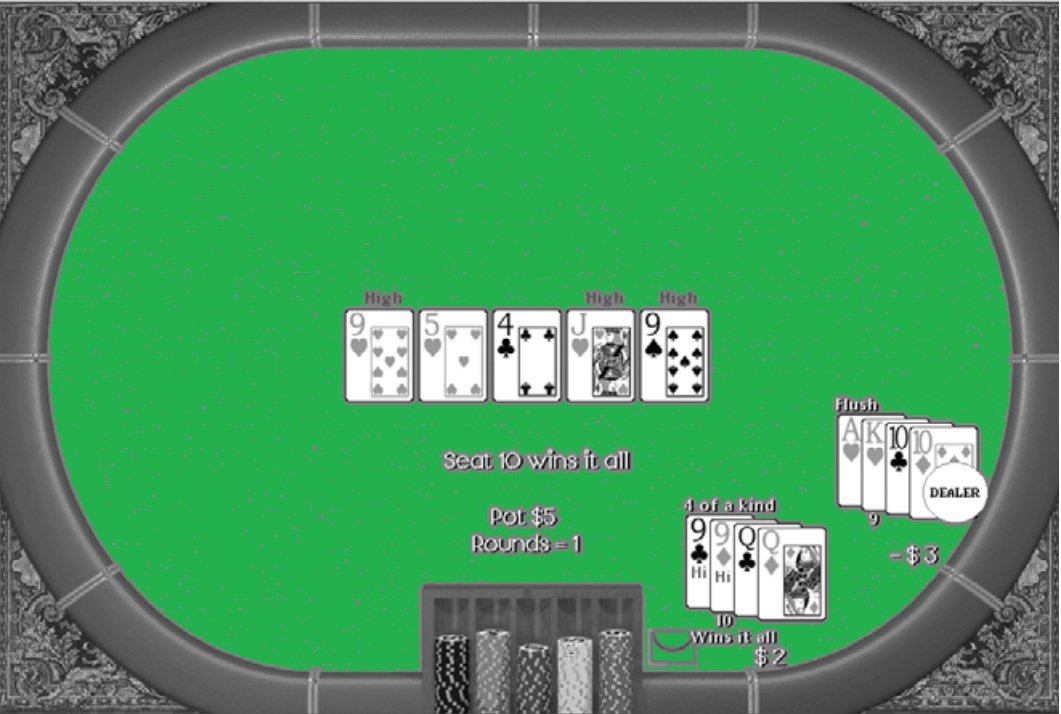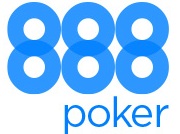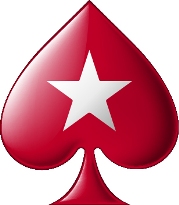If you think watching the river card come out in Poker Hold ’em is hard on your nerves, wait until you play Omaha. As an extreme example of what can happen when the last card hits the table, take a look at the hand in the next figure:

This hand features a Royal Flush, four Jacks, four Queens, a Queen-high straight flush, and Tens full of Queens. The eventual winner was in front with an Ace-high straight on the flop, but the Jacks pulled way ahead by making quads on the turn, only to be beaten in not one, not two, but three places on the river.
Note: Be sure to drop by the Gambler’s General Store at 800 South Main Street the next time you’re in Las Vegas. There’s a similar hand painted on the exterior wall facing the parking lot.
The fantasy hand shown in this figure provides an important lesson to the Omaha high player: Small full houses can cost you a lot of money on the river. The player with Tens full of Queens simply refused to let his hand go, and what started out as the best hand before the flop took a lot of that player’s chips with it when it went down in flames. And please remember that winning Omaha hands tend to be a lot stronger than Hold ’em hands! Those extra two hole cards make a huge difference. If you’re not sure whether you’re beat or not, it’ll only cost you one bet to find out at limit Omaha. If you’re in a pot limit or no-limit game, you’ll need nerves of steel and good judgment to call. We can’t help you there; it’s all about experience at that point.
Playing When You Have the Nuts
If you have an almighty lock on an Omaha hand, you are bound to get paid off, particularly when your lock is well disguised. For example, you might have played A♥J♥J♦7♦ and flopped a Jack-high straight flush in diamonds. We’ve already shown you how to extract the most money from your opponents on the flop and turn, but how should you follow up those tactics on the river? The secret comes in noticing whether and how the board changed from the turn to the river. As an example, consider the board in the next figure below:

Playing When You Have a Strong Hand
The texture of the board matters a great deal when you don’t quite have the nuts but do have a strong hand in Omaha high. One common example of a strong hand that isn’t the nuts is a King-high flush, as shown in the figure below:




 Comunity Cards
Comunity Cards



 Your Pocket Cards
Your Pocket Cards
The second nut hand will get you in trouble, but a King-high flush is still a winning proposition with no pair on board
According to a 100,000-hand simulation in Turbo Omaha, you are still just about a 2 to 1 favorite to win a hand with a King-high flush against nine random hands, where no one folded before the river. By comparison, you have a 42 percent chance of winning when you have a Queen-high flush, which is still a pretty good shot at the money. As always, though, you need to do a reality check and pay attention to anyone who comes out betting or raising on the river, particularly because the flush draw has been available since the flop. You must rely on your knowledge of your opponents and your gut instinct to know when you are beat.
Another common hand is when you have a set against a possible straight. As before, you need to decide whether your opponent backed into a straight on the river or whether they were drawing for it from the flop. In general, the lower the cards on the board, and the more gaps between them, the less likely it is that your opponent has the straight they’re representing. As an example, consider the hand in the next figure:




 Community Cards
Community Cards



 Your Pocket Cards
Your Pocket Cards
The card ranks and the gaps between them make a straight less likely
In this case, your opponent would need to hold either T7 or 75 to have a straight. Neither hand is particularly likely if you’re going up against rational players in an Omaha high game, but there’s always the chance someone played two pairs or a couple of suited Aces and hit the straight on the river.
Playing When You Have a Marginal or Weak Hand
In a word: Don’t. We’ve seen hands won by Ace-high, but they’re few and far between. If someone bets on the river, and they were betting from the start of the hand, give ’em credit for a hand and save your money.
Note: If Omaha isn’t crazy enough for you, check out the rules for Chowaha, the world’s wildest poker game, at www.coonrod.com/ scot/poker/chowaha.html. We don’t think you can play it anywhere online, but you never know.










